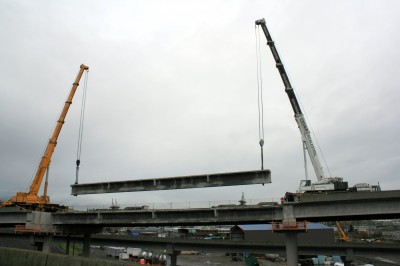It’s always hard to tell for certain what’s really happening on the inside during House-Senate conference committee negotiations on the transportation bill. Nearly all of the meetings are in private for the most part and confirming rumors and hearsay on what’s really happening is always very difficult. Which is one reason why you haven’t read all that much in the way of daily coverage of conference here on the T4 blog.
But we’re fairly certain that a crucial provision in the Senate bill is under attack by some — and we need your help to defend and preserve it in the final transportation bill that will emerge from conference.
Known as the Cardin-Cochran amendment, this provision that was included in the Senate bill would help our cities and towns revitalize Main streets, improve public health, and make streets safer for everyone who uses them. It does that by giving them the ability to make choices about how transportation dollars are spent in their communities.
Many of you wrote your senators over the last few months about this, going back to when it was just an amendment in the Senate. That groundswell of support, as well as broad outreach from mayors across the country, resulted in a huge victory when it won bipartisan support and was included in the Senate bill. But now that provision is under attack and could be scrapped as the House and Senate negotiate a final transportation bill if we don’t fight for it. Today.
If this important provision isn’t included in the final bill, Congress would take transportation choices away from local governments and give the state sole power over them.
Senators already recognized that they should give control and choice back to local governments to invest in the smaller projects in their communities that revitalize their communities while building out a full transportation network that is safe for everyone.
These issues are being decided this week in the conference negotiations. So please tell your Senator and representative to preserve the Cardin-Cochran provision.
Note: Read more about this important provision here in this post with downloadable fact sheet.




